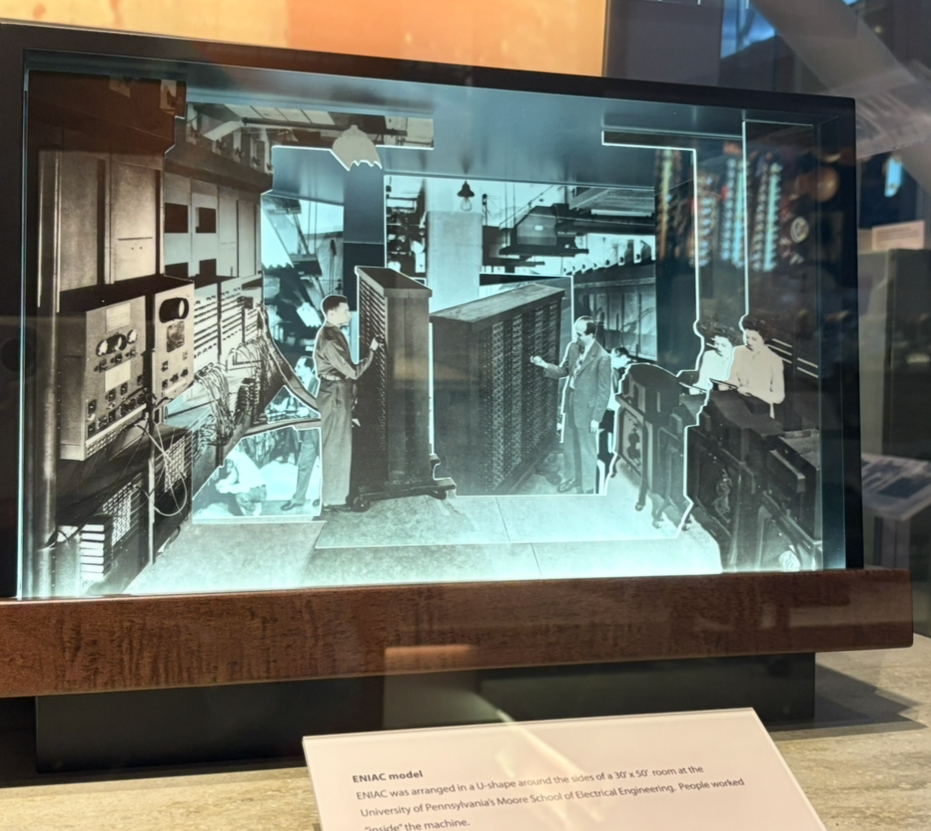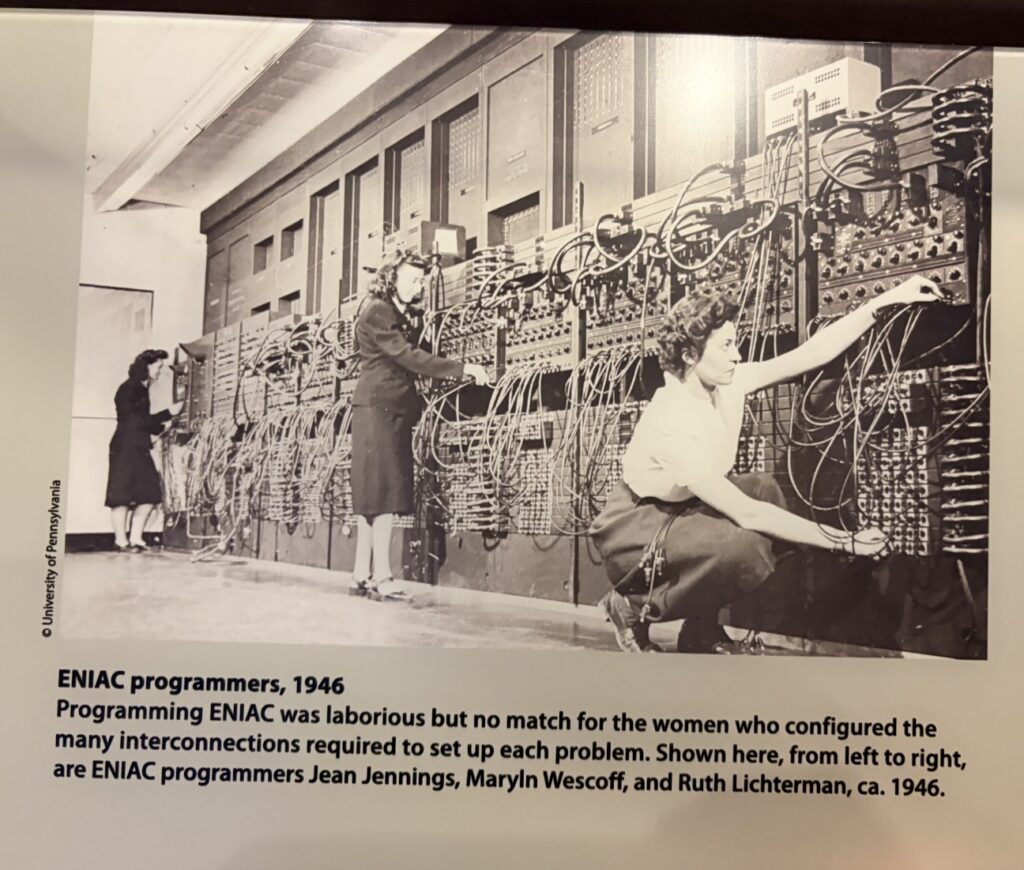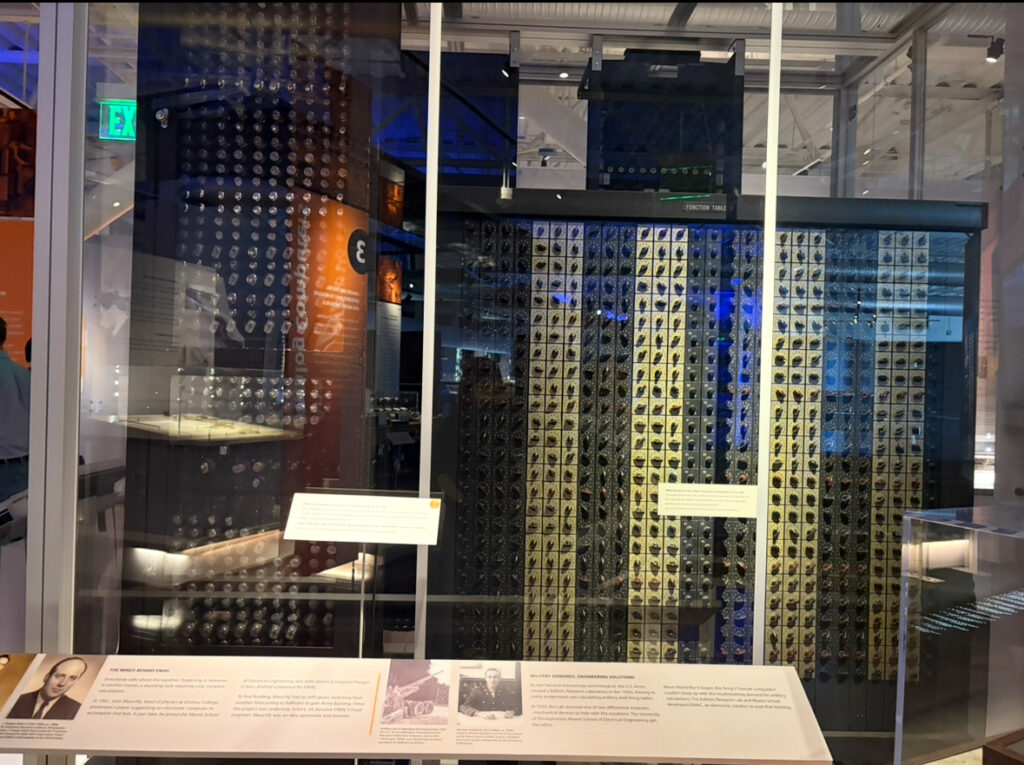I’ve been diving deep into Post-War ideologies ever since my first project for this class, where I explored Metropolis and the historical context behind society’s obsession with technology and industrialization. For example, Post-WWI Germany industrialized rapidly. My own country, China, after being colonized by Britain for 156 years and invaded by Japan, went into an insane rush to industrialize—making nuclear weapons and improving military power. Even my generation today can still feel the trauma from those wars and the intense desire to be powerful.
Last week’s visit to CHM really drove home how WWII acted as a catalyst for the birth of the modern electronic computer. The unprecedented military need for calculations combined with hefty wartime budgets pushed innovation forward rapidly. During the visit, I saw tons of war machines that eventually contributed to modern commercial computer technology. In other words, they were created out of wartime necessity, and after the war ended, they transitioned into commercial use.
This concept really fascinates me. Is it human instinct that makes society more obsessed with violence than peace? It seems like the desire for power and the fear of being overpowered drive societal development more than the desire for happiness ever could.
My favorite machine was ENIAC. In the early 1940s, the U.S. Army contracted what would become ENIAC (Electronic Numerical Integrator And Computer) to compute artillery-firing tables and solve other ballistics problems. It was used for classified military projects, including preliminary calculations for the U.S. hydrogen bomb. It started as a war tool but became the first large-scale electronic computer.
Seeing it in person was incredible, especially when I realized this machine is essentially the “ancestor” of the computers we use every day. It was also really cool to see the photo of the women who programmed ENIAC—a reminder that women played a crucial role in early computing history, even though their contributions often went unrecognized at the time.


